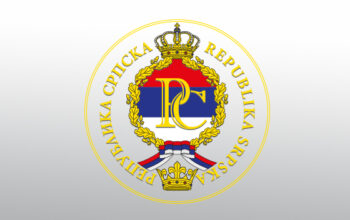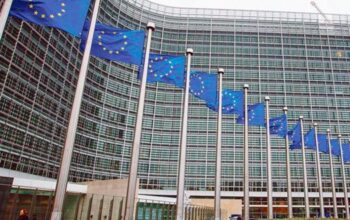The Government of Republika Srpska issued a press release on Tuesday responding to the Constitutional Court’s injunction against the planned referendum on the RS national holiday. In it, the RS expressed disappointment in “the court majority’s pattern of deciding cases based on politics rather than legal merit.” The full text of the press release is below.
Republika Srpska is disappointed that the BiH Constitutional Court’s new decision on the referendum continues the court majority’s pattern of deciding cases based on politics rather than legal merit. The RS remains confident that the referendum on Republic Day is fully consistent with applicable law and with implementing the previous decision of the Constitutional Court on the Law on Holidays.
The referendum is fully in accord with applicable law.
On 15 July 2016, the RS National Assembly voted, in accordance with the 2010 RS Law on Referendum and Civic Initiative, to hold a referendum asking for RS citizens’ opinion about whether Republic Day should continue to be observed on 9 January. The RS Constitution has long specifically provided for referenda at Articles 70 and 77. The Council of Europe’s Venice Commission has thoroughly scrutinized the consistency of the RS Constitution with the BiH Constitution (1), and it has never objected to the RS Constitution’s referendum provisions. The RS’ 2010 Law on Referendum and Civic Initiative was drafted in light of the Code of Good Practice of the Venice Commission(2) and the Recommendations of the Council of Europe’s Committee of Ministers on citizens’ participation in public life at the local level.(3)
The Constitutional Court’s November 2015 decision cannot be read to forbid Republika Srpska’s observation of the date of its founding.
The Constitutional Court’s November 2015 decision cannot be interpreted to forbid the RS from observing 9 January as the anniversary of its founding. Such a reading would either render unconstitutional every public holiday in Republika Srpska and the Federation or amount to ethnic discrimination against Serbs.
If the November 2015 decision were to be interpreted as forbidding the 9 January holiday because it coincides with the Orthodox feast of St. Stephen, that would require all public holidays that mark religious feasts—or even coincide with religious feasts—to be banned. Because there are Catholic and Orthodox feasts for every day on the calendar, this would include every single public holiday, including secular holidays.
If the November 2015 decision were interpreted as forbidding the 9 January holiday because it allegedly favors one ethnic group over others, it would certainly also require forbidding the Federation’s 1 March celebration of “Independence Day.” The Federation’s 1 March public holiday marks the anniversary of the 1992 referendum through which Bosniaks and Croats voted for Bosnia and Herzegovina to unilaterally secede from Yugoslavia. Serbs strongly objected to implementation of the referendum and did not participate in the referendum itself. Serbs consider 1 March to be the anniversary of an illegitimate referendum that tore the Serbs of Bosnia and Herzegovina away from their country, Yugoslavia, and led to war. The Federation’s 1 March holiday “favors” Bosniaks and Croats at least as much as Republika Srpska’s 9 January holiday “favors” Serbs.
The attack on Republic Day is based solely on politics.
The SDA’s challenge to Republic Day was a baldly political effort to humiliate Republika Srpska and manufacture a crisis. The RS has been observing Republic Day for 20 years, just as Bosniak-majority cantons have been observing holidays of special significance to Bosniaks and Croat-majority cantons have been observing holidays of special significance to Croats. None of these holidays is doing any harm or violating anyone’s constitutional rights. Yet the SDA singled out one holiday—Republika Srpska’s Republic Day—for legal challenge, ignoring the Croat and Bosniak holidays.
The Constitutional Court’s pattern of political decisions
The Constitutional Court’s decision on the referendum follows a long pattern of the court acting as a political instrument of the SDA and the High Representative as they seek to undermine Republika Srpska and centralize authority in Sarajevo. The U.S.-based NGO Freedom House recently wrote the Constitutional Court’s November 2015 Decision on Republic Day “exemplified the judiciary’s politicization.”(4) The Constitutional Court’s two Bosniak judges, who are both former high SDA officials (General Secretary and Vice President), vote consistently according to the SDA’s political interests rather than each case’s legal merits. Meanwhile, the court’s foreign judges vote according to the wishes of the High Representative, which usually align with the SDA’s agenda. An Austrian judge who was a member of the Constitutional Court admitted that there was a “tacit consensus between the Court and the High Representative….”(5)
The Constitutional Court’s political nature is one reason why many of its decisions have never been implemented. Since 2004, authorities have failed to implement 91 decisions of the Constitutional Court (6). Most prominently, the Constitutional Court’s 2010 decision declaring the Mostar electoral system unconstitutional remains to be implemented.
________________________________
1 See, e.g., Venice Commission, Compatibility of the Constitution of the Republika Srpska with the Constitution of Bosnia and Herzegovina following the Adoption of Amendments LIV – LXV by the National Assembly of Republika Srpska, Secretariat Memorandum on the basis of the Commission’s opinion appearing in document CDL(96)56 final.
2 CDI AD 2007-2008.
3 Rec (2001) 19; Memorandum from Jasna Brkić, Minister of Economic Relations and Regional Cooperation, Republika Srpska, to Zoran Lipovac, Minister of Administration and Local Self-Government, Republika Srpska, 21 Jan.
4 Freedom House, Nations in Transition 2016: Bosnia and Herzegovina, p. 9.
5 JOSEPH MARKO, FIVE YEARS OF CONSTITUTIONAL JURISPRUDENCE IN BOSNIA AND HERZEGOVINA, European Diversity and Autonomy Papers (July 2004) at 17 and 18 (emphasis added).
6 Freedom House, Nations in Transition 2016: Bosnia and Herzegovina, p. 10. 2010.


